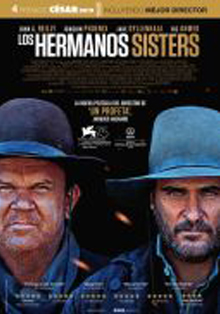Pedro González
Journalist
Western chancelleries did not want to believe it, but it turns out that Russian President Vladimir Putin, the accredited alpha male, is a fairly predictable strategist, so much so that all his moves have long foreshadowed the offensive now being launched against Ukraine.
If we dust off what happened in 2008, we see a carbon copy of what happened in those days. Georgia aspired to join NATO and, why not, the European Union. Like so many other republics that had gained independence from a Soviet Union that had fallen apart, Tbilisi aspired to become the master of its own destiny, traditionally identified with the best of Western culture. But in the Kremlin, Vladimir Putin was already thinking about how to restore the power and prestige of a crumbling empire, deserving of scorn such as that of President Barack Obama, who went so far as to call Russia a “regional power”. An epithet that Putin received as an intolerable spit and for which he vowed to one day exact revenge.
So what did Putin and his then right-hand man in the Kremlin, Prime Minister, then President, then Prime Minister again, Dmitry Medvedev, do? Encourage separatism in two Georgian regions with significant Russian-speaking populations: South Ossetia in the north and Abkhazia in the west of the country, respectively. The separatists in both territories would then proclaim their own independence on the basis of the subjugation to which they were allegedly subjected by the central power in Tbilisi. And, of course, Moscow came to the rescue of its Russian “fellow citizens”. The Georgian war ended with a deal cooked up by the then French president, Nicolas Sarkozy, to whom a declining US president, George W. Bush, had already delegated the task of not involving too much the United States, which had enough to deal with on the Iraq and Afghanistan fronts, never pacified since the established coalitions, mainly made up of American and British troops, had invaded those territories.
What did Putin and Medvedev observe from their Kremlin vantage point? Well, Western protests of decreasing decibel intensity, threats of decisive sanctions, which were later revealed to be no big deal, and, finally, a gradual forgetting of that war by European public opinion, even despite the requests for help and aid from the leaders and the population of Georgia, a country that would enter into successive political and economic crises from which it has still not recovered. And, of course, with the dream of one day joining NATO and the EU completely dissipated.
Putin has internalised the West will not openly confront
Now, the veteran KGB comrade, after testing the reaction capacity of his adversaries in the West, namely NATO and the EU, and thoroughly checking the exhaustive reports of his intelligence services, must have concluded that if he entered Ukraine and unleashed an open war, he would find practically the same pattern as in Georgia and, by the way, in Crimea: Demonstrations of condemnation, protests, sanctions that are a little tougher than then but which he has already taken for granted, and then forgetting that the world has moved on and has other things to worry about.
Putin is showing that he is not afraid of war. His determination to see Russia’s power restored is strong enough to foresee that he will not give in to adversarial or enemy threats. He assumes that neither the United States nor NATO will openly confront his troops. Public opinion, lulled into a growing hedonism, would not bear the pain of contemplating the corresponding coffins back home. So he has seen an opportunity to strike the first blow.
As in the case of Georgia, the big loser is Ukraine, which will be cut off from much of its territory, strangled in its ability to manage its Black Sea coastline, and virtually surrounded and thus threatened by Russian neo-satellites such as Belarus or Transnistria.
Bringing poor Ukraine back under Russia’s orbit will also mean a substantial change in the potential contribution of its wealth. Let us not forget a few facts: Ukraine ranks first in Europe in uranium reserves; second in titanium; second in the world in minerals such as manganese, iron and mercury, and ultimately fourth in the world in terms of the estimated value of its natural resources. Nor should we neglect its large agricultural production, from wheat, rye, maize and barley to beekeeping and chicken eggs, enough to feed 600 million people, or almost the entire EU and more.
© Atalayar / All rights reserved






